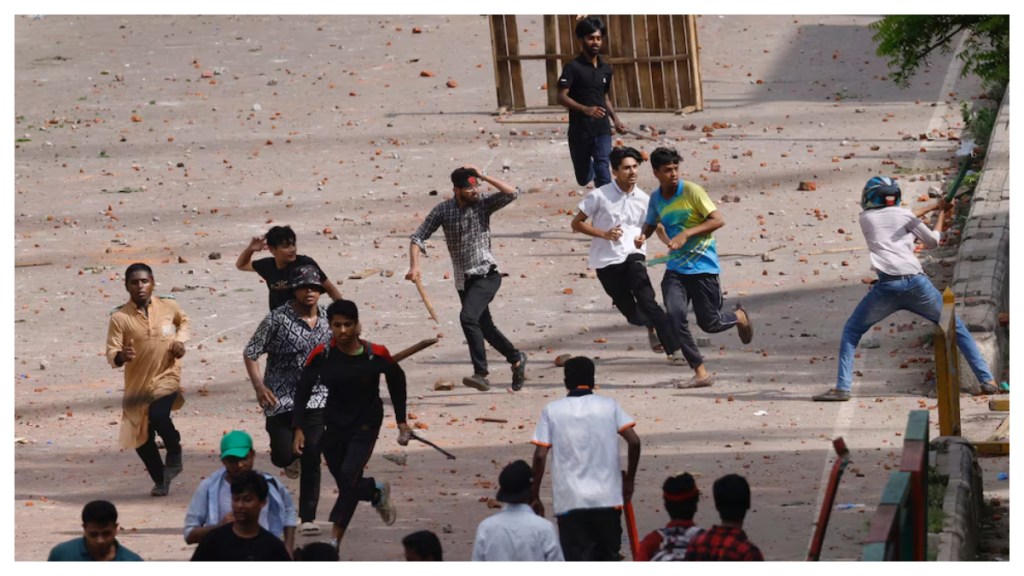Bangladesh is currently witnessing one of the deadliest clashes in history over quota in government jobs. Over the course of two weeks, students have taken to streets, rallying and chanting slogans against the unfair quota system. The unrest, stemming from vehement opposition to a government jobs quota, has erupted into widespread violence. Reports indicate that student protesters on Tuesday clashed fiercely with pro-government activists and law enforcement personnel in Dhaka, Chattogram, and Rangpur. According to multiple media reports, at least 6 persons including students were killed and over 400 people were injured.
What is the unfair job quota debate?
Students from government and private universities across Bangladesh have come together in a concerted effort to challenge and reform Bangladesh’s long-standing job quota system. This system currently reserves more than half of coveted government positions, sparking widespread discontent among the student community.
Central to the controversy is the allocation of government jobs under specific quotas: one-third reserved for the children of war heroes who fought for Bangladesh’s independence in 1971, as well as quotas for women, ethnic minorities, and individuals with disabilities. While these measures were originally intended to promote inclusivity and social justice, critics argue that the current implementation perpetuates discrimination and undermines the principle of meritocracy.
Government jobs are highly sought-after in Bangladesh due to their competitive salaries. Currently, over half of these positions, numbering in the hundreds of thousands, are earmarked for specific groups.
At the heart of their protest is a demand for a merit-based recruitment process that ensures fairness and equal opportunity for all aspiring candidates, irrespective of their background or affiliations. The protesters have been repeatedly demanding admission independence from any political affiliations.
From campus to cities, protests have spilled over
The protests have not been confined to university campuses alone; they have spilled over into the streets of major cities such as the capital Dhaka. Here, clashes have erupted between supporters of the anti-quota movement and opposing factions, notably the student wing of the ruling Awami League, known as the Bangladesh Chhatra League (BCL). These confrontations reflect the deep-seated divisions and tensions surrounding the issue, highlighting the broader societal implications of the quota debate.
As tensions escalate, the protests have become a symbolic battleground for larger societal grievances regarding governance and fairness.
In response to the escalating unrest, the government faces mounting pressure to address the protesters’ concerns and navigate a path toward a more inclusive and merit-based employment system that aligns with the aspirations of the nation’s youth. The outcome of these protests could potentially reshape the landscape of public sector employment policies in Bangladesh for years to come.


